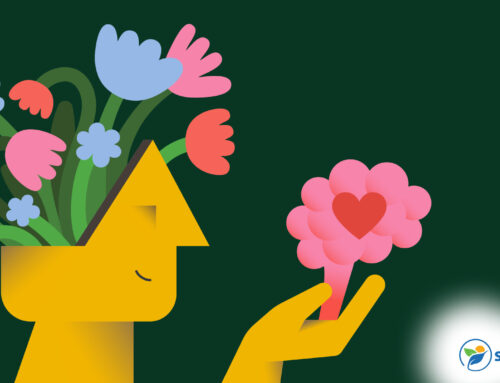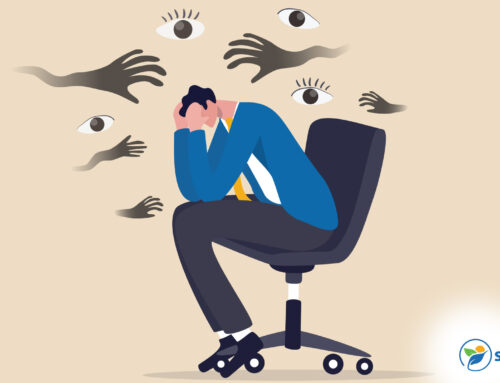Insomnia is a common condition that affects 14.5% of adults, according to the National Center for Health Statistics (NCHS). Depending on the severity, being afflicted with insomnia can impact many areas of your life. This makes many suffering from sleep troubles eager to find a solution so they can get the rest their body needs to function at its best.
If you’ve been wrestling with insomnia, choosing to seek out a care provider to assist you may have you wondering who you should see and asking yourself, “Is insomnia a mental illness?” Learn how insomnia relates to mental health, the impact it has on you and what you can do about resolving it.
Is Insomnia a Mental Illness?
It’s normal for people to have trouble sleeping occasionally, especially if they have something exciting coming up or are preoccupied with general life concerns. If the issue causes you to have trouble falling asleep or you find yourself waking up frequently or too early at least once a week, it might be time to address the problem. To do this, you need to find the right health care provider to guide you. So, is insomnia a mental illness, or is it time to run some lab work at your family doctor’s office?
People with severe insomnia can certainly feel like their mental health is wearing thin, but it isn’t a mental illness. Along with the mental and physical side effects insomnia sufferers often experience, having this condition often points to an undiagnosed or improperly treated mental condition. The National Alliance on Mental Illness asserts insomnia is rarely discovered as an isolated health condition and is most often a symptom of an underlying physical or mental health issue. Common physical or lifestyle causes include sleep apnea and overuse of stimulants, such as caffeine.
If physical causes have been ruled out, there’s a good chance an underlying mental health issue is to blame. Anytime you’re faced with the struggles of insomnia, mental illness is often closely intertwined. Although many conditions can lead to experiencing insomnia, anxiety and depression are the most common culprits.
Anxiety’s Link With Insomnia
Anxiety is a condition of mental hyperarousal that causes up to one-third of adults to worry at an excessive rate that affects their daily lives. This kind of worry often carries into the evening when things get quiet and there are minimal distractions from whatever is playing in your mind. This can lead to a greater focus on any topics of concern, making it difficult to shut out the inner monologue and fall asleep.
If you experience health anxiety, the relative silence before bedtime can cause hyperawareness of the different processes in your body, causing concern if they’re newly discovered. Once you fall asleep, the inner alarm bells that anxiety keeps ringing can prevent you from staying asleep, causing you to go through the experience all over again.
Unfortunately, getting proper rest is an important element of easing anxiety levels. Knowing this can put additional pressure on you to fall asleep on time, increasing your anxiety and making it harder to get the sleep you know you need. In this way, anxiety and insomnia can feed off one another, each condition worsening the other and preventing recovery.
The Cycle Between Insomnia and Depression
Depression is another common mental health issue that has a close relationship with insomnia. Insomnia can affect emotional regulation, which can make you more susceptible to developing depression, whether now or further into the future. Having depression reduces the amount of restorative sleep you’re able to achieve each night, creating disruption in your sleep patterns.
The two are so closely linked that around 80% to 90% of people diagnosed with depression will also list insomnia as one of the symptoms they experience. In fact, it’s so common that some researchers caution against diagnosing depression in individuals who aren’t displaying signs of sleep disturbances.
How Insomnia Can Impact You
Aside from exacerbating underlying health issues that may be causing your insomnia, there are several other effects this condition can have over time. Having to function each day in exhaustion is an obvious problem, making it difficult to drive safely or maintain your set responsibilities. Poor memory and concentration can create problems with your job, putting you at risk of losing your income.
Any resulting problems with emotional dysregulation can even affect your relationships with others who may not understand your sleep struggles and only note a change in your personality. Because your brain isn’t getting the benefit of restful sleep, this can cause you to have a stronger reaction to situations than is normal for you.
It can even negatively impact your physical health. Blood sugar levels can increase, which can lead to weight gain. Liver problems have been associated with disrupted sleep patterns, and long-term insomnia without proper treatment may increase your risk for a stroke or heart attack.
Are There Treatment Options?
Fortunately, the prevalence of insomnia has led to the development of many treatment options to address the problem. When seeking treatment, your first stop should be with your family doctor to rule out any physical causes that need to be addressed. If your physical assessment, review of any medications you may be taking and lifestyle review don’t turn up any answers, it’s time to work with professionals who understand the connection between insomnia and mental health.
When working with a therapist or psychiatrist, insomnia should be treated with the triggering mental illness. A proper diagnosis is the primary step, followed by treatment of this underlying cause to help bring your sleep patterns back on track. This is often accompanied by therapies or medications that address the insomnia directly.
If you’ve been struggling with insomnia and have reason to believe your mental health may be at the heart of the issue, you don’t have to learn to live with it. At Sunlight Recovery, our expert understanding of the common mental health issues that cause insomnia ensures we’re ready to develop a treatment plan that addresses the underlying mental illness while promoting better sleep habits to break the cycle between the two. Contact the experts at Sunlight Recovery today so we can discuss your experience and start you on your journey to consistently restful sleep and control over your mental health condition.





